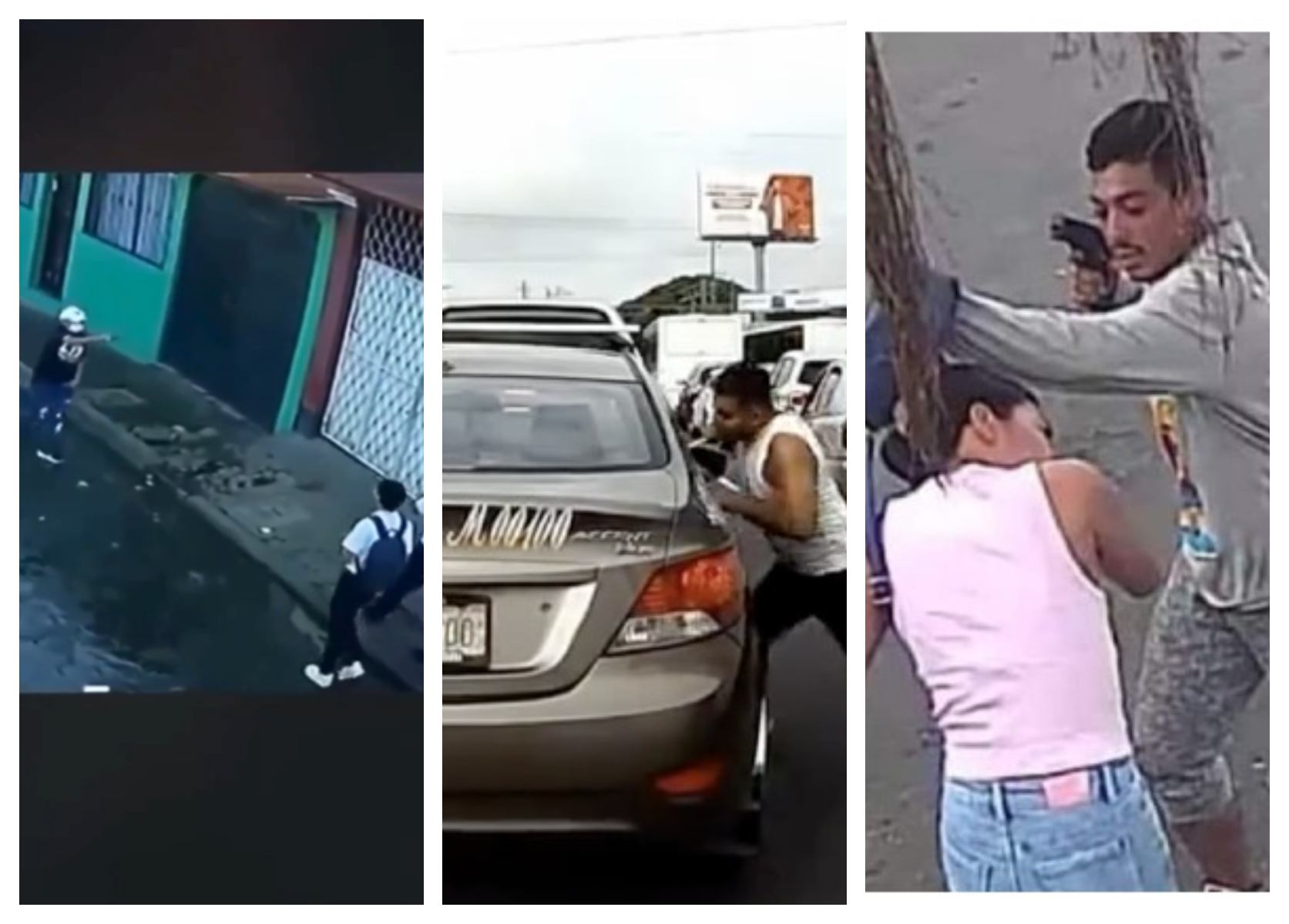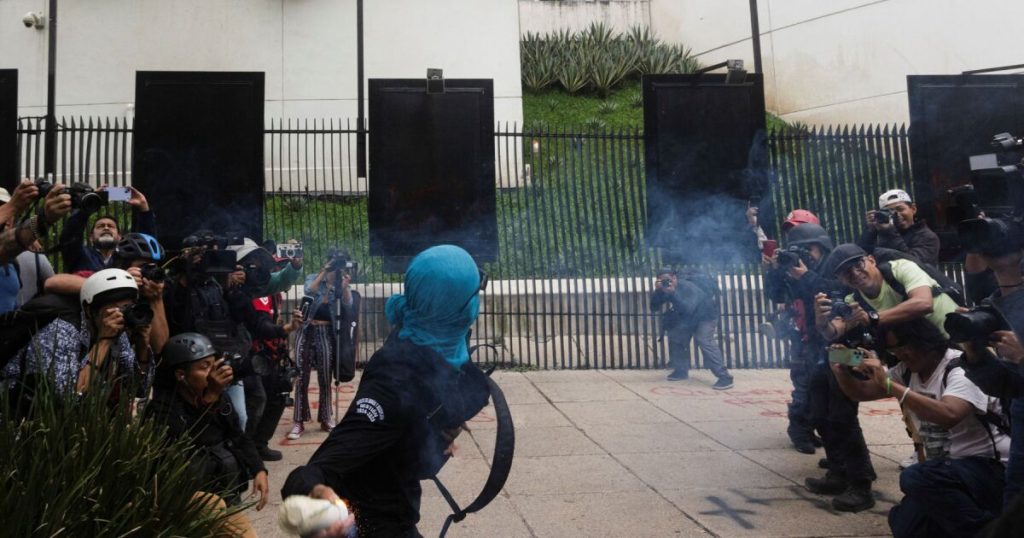In its attempt to project an image of a safe country, the regime of Daniel Ortega and Rosario Murillo maintains that Nicaragua has reduced its homicide rate to 7 per 100,000 inhabitants, supposedly placing it among the lowest in Latin America and the world.
However, the reality on the streets and the “hidden or disguised figures” tell a very different story. Through constant and unverifiable propaganda, the dictatorship seeks to convince the population and the international community that the country lives in a climate of peace and security, although without a full rule of law.
The arrests, kidnappings and forced disappearances of citizens who criticize the government, plus trials held in the shadows and without adequate legal defense, are another problem that exposes the lies of a regime that has lost all credibility both inside and outside the country.
“It’s that easy. The government can say that nobody dies here, that there are no homicides, zero robberies, that everyone is happy. Anyone who says otherwise, even if they are suffering from public insecurity, goes to jail. Here they throw you in jail even for carrying photos of people the government doesn’t want. So, the regime can even give mass,” says a public security specialist who, for obvious reasons, asks that his identity be protected.
Half-truths and omissions
The National Police, an institution that for many years was the best in the region until Daniel Ortega returned to power in 2007, destroyed its prestige by submitting to his political decisions. Since 2018, when it obeyed the order to shoot opponents and allowed paramilitary actions, it stopped publishing detailed figures on homicides, femicides, robberies and other crimes.
At the recent press conference on September 2, for example, police spokesman General Commissioner Jaime Vanegas reported the arrest of 23 people for various crimes during the period from August 26 to September 1, highlighting only two arrests for homicide.
Related news: Viral robberies, impunity and the release of common criminals increase insecurity in Nicaragua
One of those arrested was Hector David Gomez, accused of killing Antonio Martinez Gonzalez during a fight when he was drunk in Rivas, causing head trauma after hitting him and throwing him to the pavement. The other arrested was Enyel Francisco Arauz Picado, who allegedly killed Marvin Alberto Garmendia Espinoza in San Sebastian de Yali, Jinotega, with a knife, during an argument.

However, during the same period, at least three more homicides occurred that were not mentioned by Vanegas. In Santo Tomás del Norte de Chinandega, Luis Gumercindo Domínguez García allegedly killed Francisco Javier Bonilla Barrera, 75, with 40 machete blows on August 28. The attacker is a moneylender who killed the victim because he could not pay him.
Another case overlooked by the police was that of Carlos Eliézer Neira Ordóñez, who killed his grandfather Felipe Feliciano Armas Ruiz, 78, on September 1, after refusing him money to buy drugs. The incident occurred in the department of Chinandega.
In addition, in Terrabona, Matagalpa, the transporter Francisco Castellón Lúquez was shot to death while he was checking his bus before starting his work day. The crime occurred on Saturday, August 31st in the early hours of the morning and to date, there is not a single clue as to who committed the crime that has caused the population to become even more worried.
And the reports on citizen security?
The regime does not provide data on homicides when a suspect has not been captured, so it is unknown whether these cases are included in official annual statistics. The scant information on homicides that existed has completely disappeared this year. Meanwhile, official propaganda insists that Nicaragua is a safe country.
According to the bulletins of the Institute of Legal Medicine, IML, 372 homicides were reported in 2023: 331 men and 41 women. However, the National Institute of Information and Development (INIDE) has not updated its statistics since 2021.
Related news: Catholic documentary filmmaker bypasses security controls in Nicaragua and records continued religious repression
As of September, the IML has not published a single bulletin this year to provide any reference on the behavior of homicides and violence, which leaves a void of reliable data that can support the claims of the Police and the regime about citizen security in Nicaragua.
Safety for some, danger for others
The regime of Ortega and his wife Rosario Murillo promotes a security narrative based on a “different” model from that of other countries in the region. According to the propaganda, the Nicaraguan police are not repressive or oppressive like those in other countries, which supposedly act under the impositions of “imperialism.” However, the reality is that in Nicaragua, criminals seem to live in peace, while opposition politicians and citizens critical of the regime face harsh repression.
The insecurity situation has worsened with the massive release of prisoners by the regime. In May 2024, Ortega granted freedom to 1,500 prisoners in commemoration of Mother’s Day, and in April, he had released another 1,500 on the eve of celebrating the anniversary of the Sandinista Popular Revolution. The 3,000 law offenders were released under the family cohabitation regime.

Since 2018, more than 35,000 inmates, many of them convicted of murder, rape and other serious crimes, have been released without having served even half of their sentences, according to human rights organizations.
The release of these prisoners has increased the perception of insecurity on the streets. Nereida is a resident of a Managua neighborhood. She describes how her community has become more dangerous since these mass releases.
“It has become more dangerous here, especially with robberies. You can’t walk in the street early or at night because thieves come out even on motorcycles. A friend’s son was shot because he wouldn’t let go of his cell phone,” says the citizen, who fears for her safety and that of her family.
Impact on women’s safety
The increase in violence is also reflected in the high levels of violence against women. The security analyst Elvira Cuadra points out that violence against women has increased significantly in recent years, especially since 2020.
Related news: The entry of gang members deepens the “insecurity, contract killing, organized crime and drug trafficking” in Nicaragua
“There are several cases of pardoned aggressors who went out to find their victims and kill them. Femicides and sexual violence against girls under 14 have skyrocketed,” Cuadra explains, pointing out how the regime’s decisions have put the lives of thousands of women at risk.
And while released criminals enjoy freedom, the regime has intensified its repression against critics and opponents. Prisons and torture are reserved for those who dare to challenge the Ortega-Murillo regime, including bishops, priests, journalists, activists and human rights defenders.

The report by the UN Human Rights Office, published this September 2024, denounces an increase in arbitrary arrests, intimidation of opponents and ill-treatment in custody in Nicaragua. The persecution of those who express dissenting opinions has intensified, affecting independent media, non-governmental organizations and human rights defenders.
While thousands of Nicaraguans have had to flee to other countries for fear of repression, thousands more are under constant surveillance and harassment even in Nicaragua. Others have to sign in every day at the regime’s police facilities despite not having committed any crime.
“Despite the expulsions and banishments of many former political prisoners, the prisons continue to hold people considered a threat by the regime. These people are human rights defenders, members of the Catholic Church, businessmen and ordinary citizens who have been kidnapped, held incommunicado and only for thinking differently from the dictators,” says the specialist.















